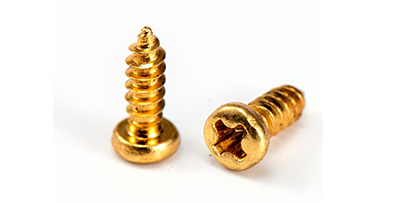Phillips self-drilling Screws are widely used in various industries, including construction, automotive, and DIY projects, thanks to their unique design that allows them to drill their own pilot hole as they are screwed into materials. However, like many industrial products, the production and use of these Screws have environmental impacts. This article explores how the materials and manufacturing processes of Phillips self-drilling Screws affect the environment and discusses eco-friendly alternatives to reduce their ecological footprint.

Environmental Impact of Phillips Self-Drilling Screws
Material Sourcing:The primary materials used in Phillips self-drilling screws are steel and various coatings such as zinc, stainless steel, or black oxide. Steel production, especially if it is not sourced from recycled materials, is energy-intensive and results in significant carbon emissions. The extraction and processing of raw materials, such as iron ore and zinc, contribute to habitat destruction, water pollution, and energy consumption. Additionally, mining practices may cause soil erosion and affect local ecosystems.
Energy Consumption in Manufacturing:The manufacturing process of self-drilling screws involves several stages, including the melting and forming of steel, coating the screws for corrosion resistance, and stamping or threading. Each of these processes requires energy, often from non-renewable sources. The energy-intensive nature of metalworking processes increases the carbon footprint of the screws, particularly when fossil fuels are used in manufacturing plants.
Waste Generation:The production of self-drilling screws, like other metal products, generates waste materials such as metal shavings, chemical runoff from coating processes, and packaging waste. While some metal shavings can be recycled, other waste materials end up in landfills or contribute to water contamination. Additionally, the use of synthetic coatings or finishes can result in chemical waste, which may be hazardous to the environment if not properly managed.
Corrosion Resistance and Longevity:While coatings like zinc plating or black oxide are designed to enhance the lifespan of screws by improving corrosion resistance, the chemical processes involved in applying these coatings can have their own environmental impacts. For instance, galvanization (the process of coating screws with zinc) involves the use of toxic chemicals, which can pose a threat to water quality and ecosystems if not disposed of properly.
End-of-Life Disposal:After Phillips self-drilling screws reach the end of their life cycle, they may end up in landfills if not properly recycled. Steel is recyclable, but screws that are not separated from other waste materials or those coated with non-recyclable finishes can be challenging to recycle. This leads to unnecessary waste and further contributes to landfill overflow.
Sustainable Alternatives to Phillips Self-Drilling Screws
As industries and consumers become increasingly aware of environmental issues, sustainable alternatives to traditional Phillips self-drilling screws are being developed. These alternatives aim to reduce the ecological footprint of screws while maintaining their functionality and durability.
Recycled Materials:One of the most effective ways to reduce the environmental impact of Phillips self-drilling screws is by using recycled materials, such as recycled steel or recycled zinc, in their production. Using recycled steel requires less energy compared to producing new steel, reducing the carbon footprint of the manufacturing process. Recycled materials also reduce the need for mining, thus minimizing habitat destruction and pollution.
Eco-Friendly Coatings:Traditional zinc coatings, while effective in preventing corrosion, can have environmental drawbacks due to the chemicals used in the galvanization process. Eco-friendly coatings are now being developed, such as those based on organic, non-toxic materials. These coatings offer similar protection against corrosion without the harmful effects of conventional coatings. Additionally, certain bio-based coatings, which use renewable resources, are being explored as a sustainable alternative to metal coatings.
Biodegradable Screws:While still in the early stages of development, biodegradable screws made from plant-based materials such as bioplastics or composites are being researched. These screws aim to provide the same functionality as traditional metal screws but decompose naturally after use, reducing waste and pollution. These screws could be particularly useful in applications where screws are used in temporary structures or where environmental concerns are paramount.
Minimalist Packaging:Reducing the packaging materials used in the transportation and sale of screws can have a significant environmental impact. By switching to biodegradable or recyclable packaging options, manufacturers can lower the carbon footprint associated with packaging waste. Using minimal or eco-friendly packaging reduces landfill waste and cuts down on the need for excessive plastic and cardboard.
Energy-Efficient Manufacturing:Another approach to reducing the environmental impact of Phillips self-drilling screws is to adopt energy-efficient manufacturing practices. Manufacturers can invest in renewable energy sources, such as solar or wind power, to reduce the carbon emissions associated with production. Energy-efficient machinery and optimized production processes can also help reduce waste and lower overall energy consumption.
Design for Durability:Creating screws with a longer lifespan reduces the need for frequent replacements and lessens the environmental burden of production and disposal. Using high-quality, corrosion-resistant materials such as stainless steel or advanced alloys can extend the life of the screws, meaning fewer resources are needed for manufacturing replacements over time.
The environmental impact of Phillips self-drilling screws is primarily associated with the materials used in production, energy consumption during manufacturing, and waste generated throughout their lifecycle. However, sustainable alternatives, such as using recycled materials, eco-friendly coatings, biodegradable screws, and energy-efficient manufacturing processes, can significantly reduce the ecological footprint of these Fasteners. By adopting these practices, manufacturers can contribute to environmental conservation while continuing to meet the demand for reliable and efficient fastening solutions. Sustainable innovations in screw design and production are essential for reducing the environmental impact of everyday products and moving toward a more eco-conscious future.





